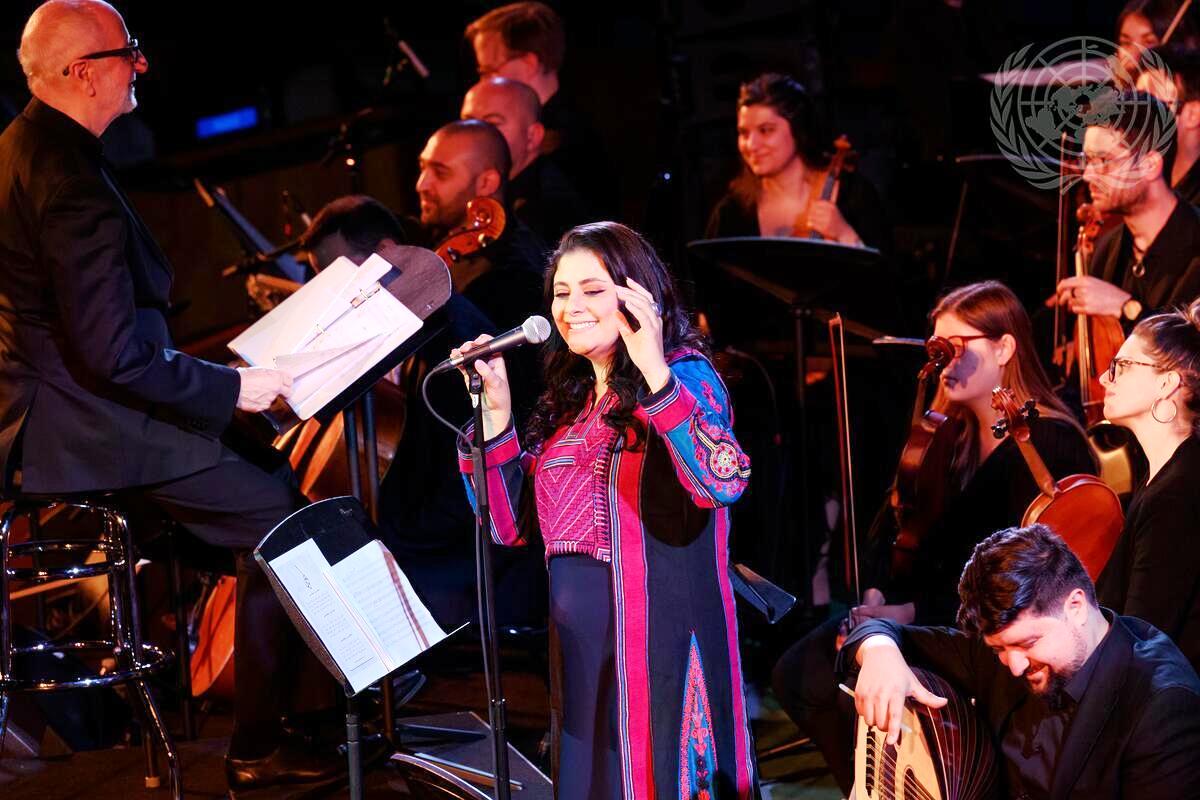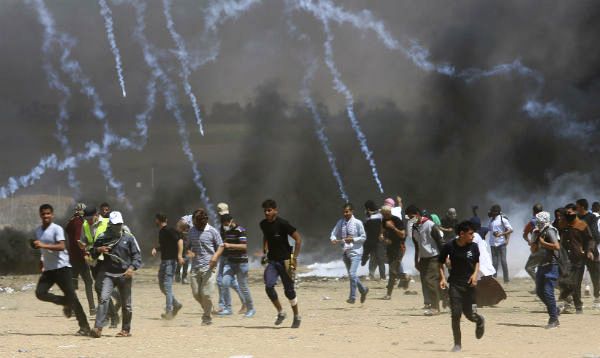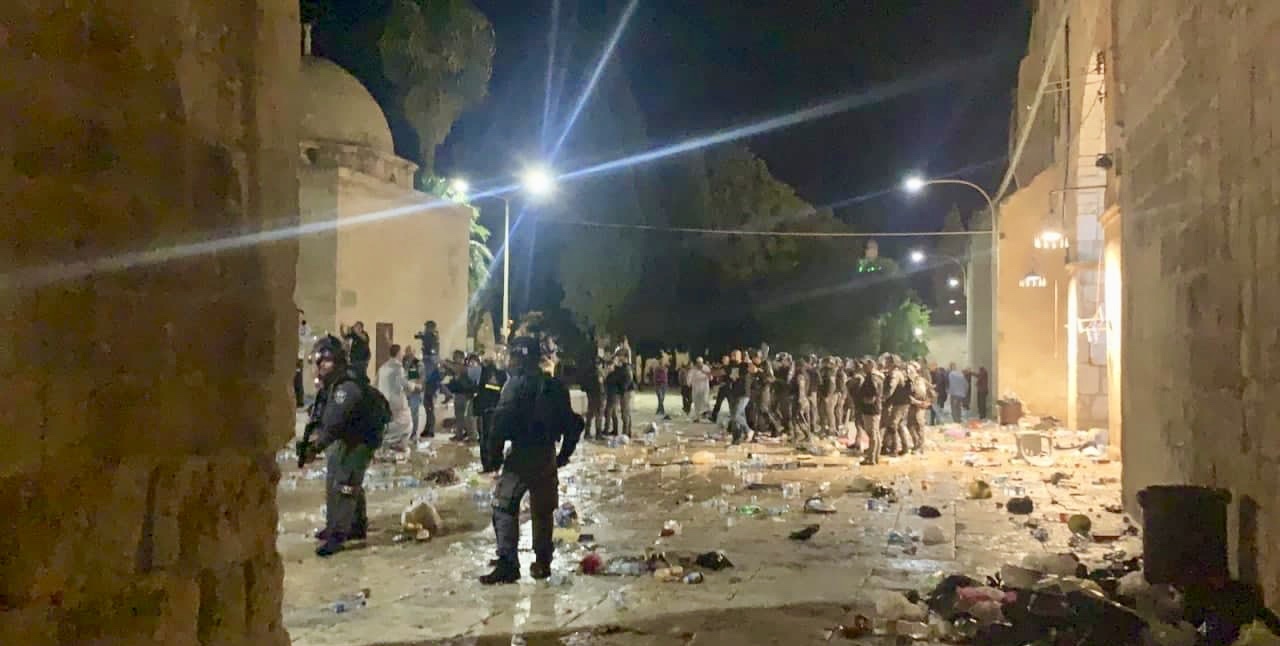by Asad Mirza
Naqba Day marks the beginning of Palestinians’ exodus from their homeland, but for the last 75 years, the international community has been unable to give the Palestinians their right to their own homeland.

On May 15, 2023, for the first time in history, the United Nations 2023 marked the 75th anniversary of the mass displacement of Palestinians known as the Naqba or the Catastrophe. The UN Committee on the Exercise of the Inalienable Rights of the Palestinian People (CEIRPP) commemorated the 75th anniversary of the Naqba at UN Headquarters in New York, pursuant to the mandate by the General Assembly.
Naqba’s History
Until the end of World War-I, Palestine was under Turkish rule as part of the Ottoman Empire. Later, it came under British control, the so-called British Mandate. The period, under the British, was marked by growing anti-Semitism in Europe, which led to an increasing number of Jews from around the world moving to Palestine, which to them was their ancestral homeland, Eretz Israel, the Promised Land by God, where Jews had always been living, though in much smaller numbers.
Post-Holocaust in Nazi Germany, a United Nations-led Partition Plan for Palestine was adopted by the UN General Assembly. The Arab League rejected the plan, but the Jewish Agency for Palestine accepted it. On May 14, 1948, the State of Israel was proclaimed.
As a reaction, a coalition of five Arab states declared war against the new state but was eventually defeated by Israel in 1949. Before the war, between 200,000 and 300,000 Palestinians had already left or were forced out of Palestine and during the fighting, a further 300,000 to 400,000 Palestinians were displaced. The overall figure is estimated to be around 700,000 people.
During the war, more than 400 Arab villages were destroyed. While human rights violations were committed on both sides, the massacre of Deir Yassin – a village on the road between Tel Aviv and Jerusalem – is particularly engraved in Palestinian memory to this day. At least 100 people were killed, including women and children. It triggered widespread fear among Palestinians and prompted many to flee their homes.
By the end of the war, Israel held around 40 per cent of the area initially earmarked for the Palestinians by the UN partition plan of 1947.
Then-Palestinian leader Yasser Arafat coined the term Naqba Day in 1998. He set the date as the official day for the commemoration of the loss of the Palestinian homeland.

Palestinian Migration
Most of the Palestinians ended up as stateless refugees in neighbouring Arab countries, and only a minority moved further abroad. Until today, only a fraction of the next-generation Palestinians have applied for or received other citizenship. As a result, the vast majority of the currently around 6.2 million Palestinians in the Middle East have remained stateless into the third or fourth generation.
According to the UN’s Palestinian refugee agency, UNRWA, most Palestinians in the region still live in refugee camps, which over time have transformed into refugee towns. They are mainly based in the Gaza Strip, in the Occupied West Bank, Lebanon, Syria, Jordan and East Jerusalem.
Unfortunately, UNRWA has not been able to get full support from the Western nations for fulfilling its mandate. To date, UNRWA has only received less than 25 per cent of its financial requirements, or US$ 364 million and still needs US$ 1.3 billion. At the beginning of 2023, UNRWA appealed for US$ 1.6 billion in support of its programmes, operations and emergency response across Syria, Lebanon, the West Bank (including East Jerusalem), the Gaza Strip and Jordan.
Over the years, the Agency has put in place several measures to utilise the very few financial contributions it received from donors.

The Palestinian right to return?
According to the United Nations General Assembly Resolution 194 of 1948, as well as the UN Resolution 3236 of 1974, and the 1951 Convention on the Status of Refugees, Palestinians who are considered Palestinian refugees have the “right of return.”
Israel however is rejecting this “right of return” for Palestinians stating that this would mean an end to Israel’s identity as a Jewish state. Israel denies responsibility for the displacement of Palestinians and points out that between 1948 and 1972 around 800,000 Jews were expelled or had to flee from Arab countries like Morocco, Iraq, Egypt, Tunisia and Yemen.
Though seemingly implausible, but at one point this century – in Egypt in January 2001 – Israelis and Palestinians were negotiating how to carry out UN General Assembly Resolution 194. This important resolution was passed on 11th December 1948, with 35 countries, including the US and the UK, voting for it. But today we seem to beat the farthest possible distance from seeing justice carried out for Palestinian refugees and their descendants.
Originally, the Zionist movement was propelled by the logic of settler colonialism. Historian Patrick Wolfe has defined it as a mode of domination characterised by “a logic of elimination”. Settler colonial regimes seek to smother the native people, or at least to suppress their political autonomy. The elimination of the native people is a precondition for expropriating the land and its natural resources.
Jewish-American intellectual Noam Chomsky observed that “settler colonialism is the most extreme and sadistic form of imperialism”. The hallmark of settler colonialism is ruthlessness and the disregard for law, justice and morality. And currently, we are witnessing all these aspects under the Zionist Israeli regime.
The Zionist movement was nothing if not ruthless. It did not plan to cooperate with the native Arab population for the common good. On the contrary, it always planned to supplant them. The only way the Zionist project could be realised and maintained was by expelling a large number of Arabs from their homes and taking over their land.
Apparently, Israel was able to achieve this, with the help of British politicians and in later years, with tacit American support. If we have to resolve the Palestinian issue, then the only credible option is for the UN to influence both the UK and the USA to play a constructive role, not a confrontational or bipartisan approach towards resolving the issue, as per the aspirations of the Palestinian people and demands of fair and equal justice.

On the other hand, the position of Arab states on the issue was evident from the statement made by the Saudi Crown Prince Mohammed bin Salman, who stressed his country’s commitment to Palestinian statehood at the Arab League summit on Friday last, amid intensified US efforts to broker a normalisation deal between the Gulf kingdom and Israel.
The comments are largely standard for leadership in Riyadh, which has long insisted publicly that it remains committed to the Palestinian cause and will only normalise ties with Israel after a two-state solution has been reached. But it also shows the lack of resolve on their part to get the Palestinian issue resolved once and for all.
(Asad Mirza is a senior journalist based in New Delhi. In his career spanning more than 20 years, he was also associated with BBC Urdu Service and Khaleej Times of Dubai. Views are personal.)















